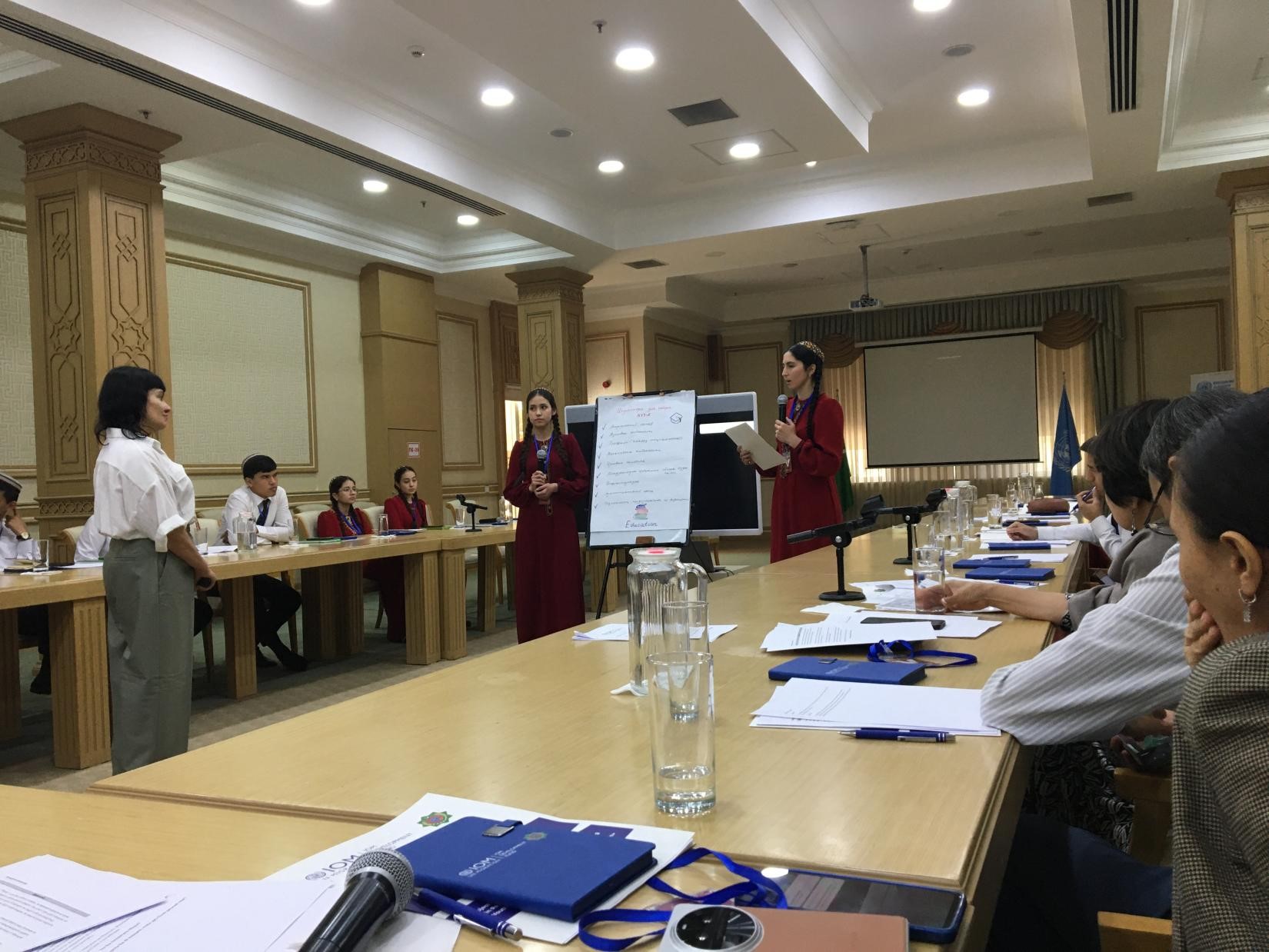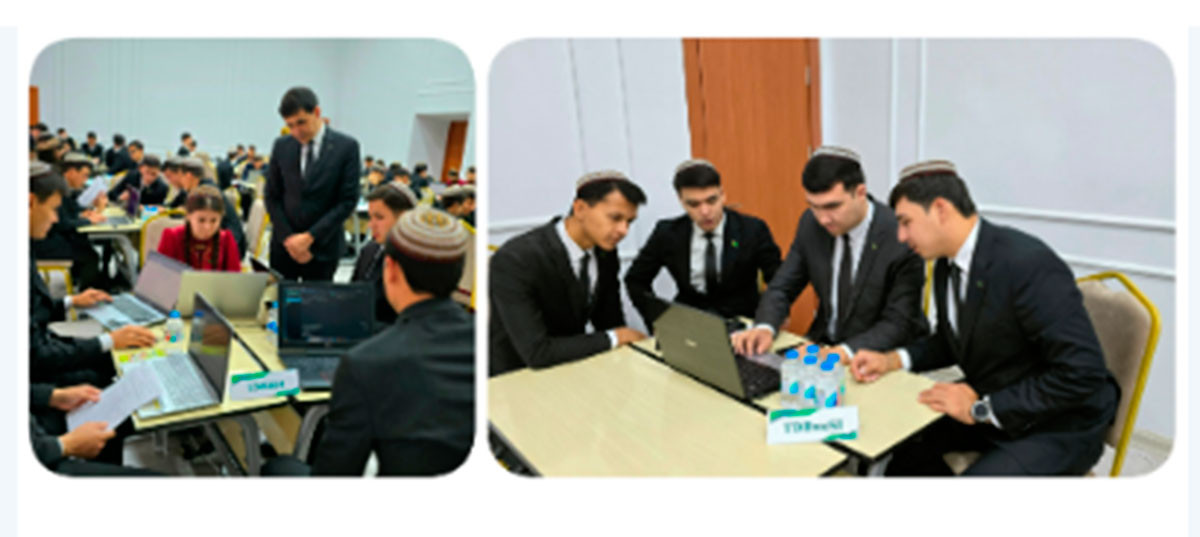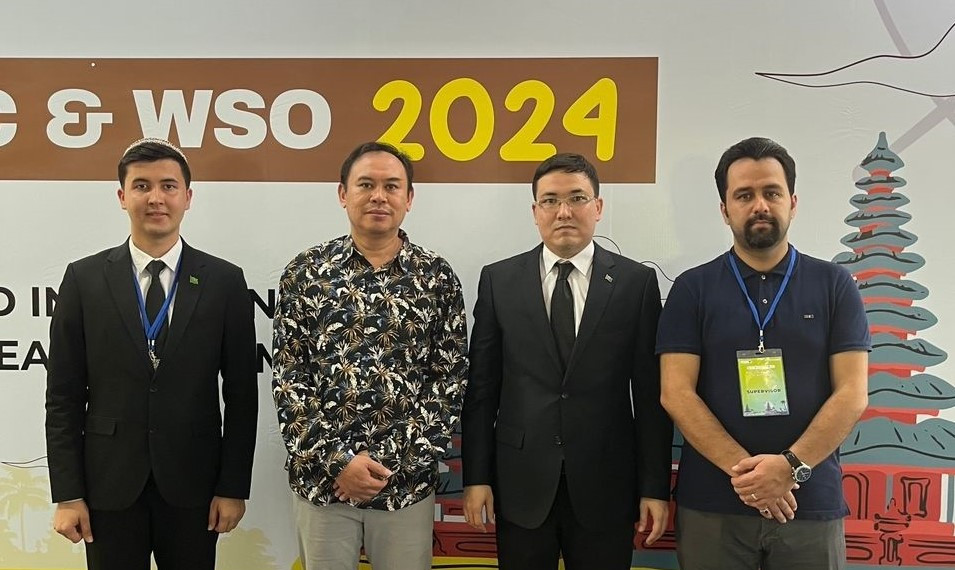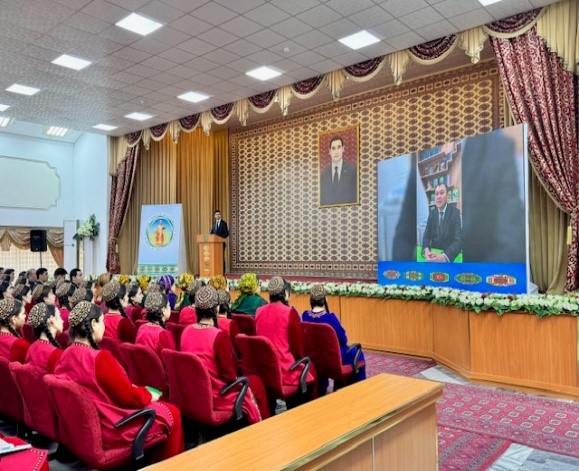Students from the country's leading universities - Turkmen State University named after Magtymguly, the Institute of International Relations of the Ministry of Foreign Affairs of Turkmenistan, the International University of Humanities and Development and the Institute of Telecommunications and Informatics discussed the role of educational migration in the modern world and its impact on the socio-economic development of countries at a seminar organized by international organization for migration.

The event was also attended by representatives of the Ministry of Labour and Social Protection of the Population, the State Migration Service, the youth organization named after Magtymguly, the Women's Union and other public organizations of Turkmenistan.
The IOM international consultant told the participants about the concept, motives and driving forces of educational migration, provided information on the compatibility of educational systems of different countries, the dynamics and trends of educational migration, national policies for attracting and retaining foreign qualified students, the best international practices promoting student mobility and international cooperation. As noted, through migration and education, people can develop knowledge, skills and competencies and contribute to the socio-economic development of countries of destination and origin.
During group discussions, students, representatives of government agencies and public organizations discussed topics related to a single educational space, recognition of educational diplomas, confirmation of qualifications and skills acquired through non-formal and informal education, knowledge transfer and measures to protect against brain drain. The focus was also on improving access to quality education abroad and guaranteeing gainful employment upon return to the country of departure as a measure to protect society from brain drain. Discussion participants emphasized the importance of proactive strategies to create incentives for the return of qualified specialists from foreign diasporas to their homeland.
As a result of working in groups, students put forward a number of innovative proposals, including matching supply and demand in the labor market through employer-sponsored educational migration, including vocational education and training, encouraging the private sector to finance government scholarship programs through tax incentives for interested companies.
In conclusion, the seminar participants noted the numerous opportunities that educational migration offers as a catalyst for social and economic change, attracting talent, stimulating knowledge sharing and diversifying the economy.








